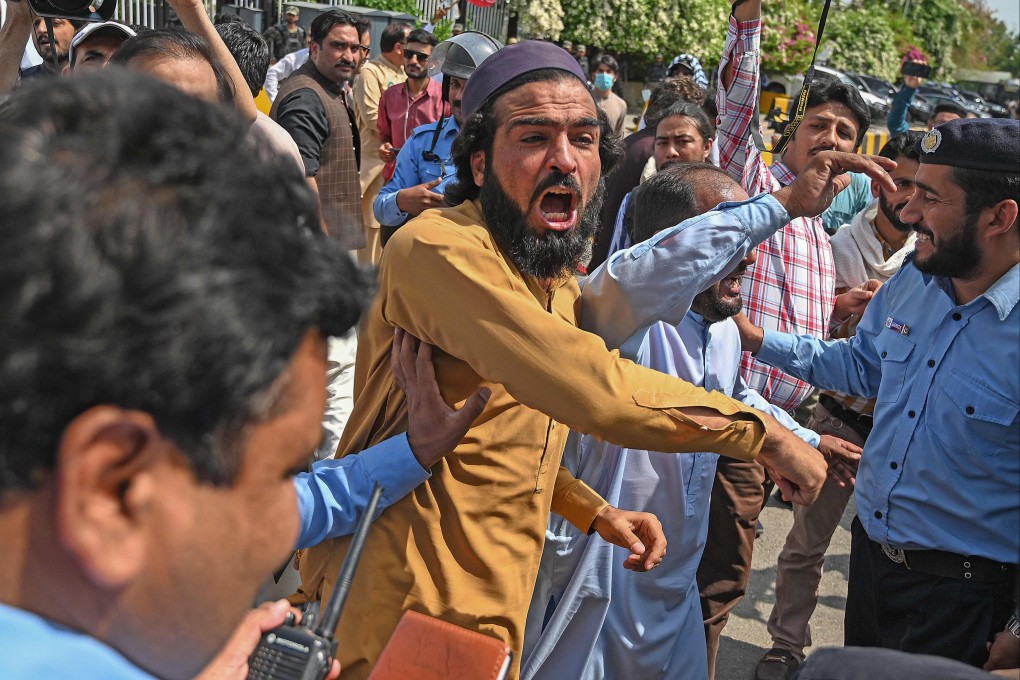Pakistan thrown into chaos amid debt woes, China concerns over infrastructure projects
- Khan avoided being ousted after an ally cancelled a no-confidence vote called by the opposition, which had said it had the numbers to unseat him
- As the Supreme Court is set to hear arguments related to the shock dissolution of parliament, analysts say the incoming government will need to stave off challenges including crippling debt and rising militancy

Prime Minister Imran Khan on Sunday threw Pakistan into chaos, calling for a fresh election after one of his loyalists abruptly cancelled a no-confidence vote in a shock move the opposition vowed to challenge at the Supreme Court.
Deputy Speaker Qasim Khan Suri, a member of Khan’s ruling Pakistan Tehreek-i-Insaf (PTI) party, cited “foreign interference” in calling off the motion brought by the opposition, sparking uproar in parliament.
Khan had appeared set to be ousted after the PTI last week effectively lost its majority in the 342-member assembly when a key coalition partner said its seven lawmakers would side with the opposition.

After the controversial ruling on Sunday, Khan asked the president to dissolve parliament in a televised address. “The public decides who they want in power. I want to tell the public to get ready for elections,” Khan, 69, told the nation.
The presidency, a largely ceremonial office, acceded hours later.
Pakistan’s deputy attorney-general Raja Khalid Mahmood resigned in protest shortly after Khan’s announcement, accusing the PTI government of grossly violating the country’s constitution and laws.
The deputy speaker’s ruling would keep Khan in office until Pakistan President Arif Alvi, another PTI loyalist, formed a caretaker administration to oversee elections.